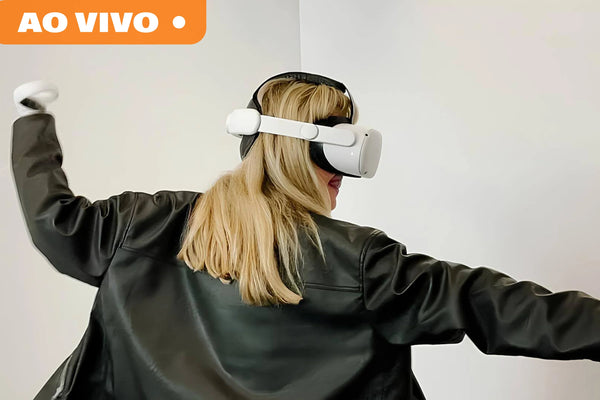
Beyond Coherence: What AI Misses About Real Intelligence

Beyond Coherence: What AI Misses About Real Intelligence
(Leadership Post-AI Series)
Let’s begin with a confession: this piece starts with a reference that almost no one outside a very specific Venn diagram, Uruguayans and theoretical economists, will get. 🙂
I’m talking about Ramón Díaz, a legendary economist from a small and demographically stagnant country tucked between two South American continental egos (Argentina and Brazil), Uruguay.
He wrote with such mathematical precision that his editorials could make Euclid, the Greek father of Geometry, jealous. But when he spoke it was pure Brownian motion: digressions, loops, ideas colliding mid-air, like the famous erratic "jiggling" of pollen noted by the botanist Robert Brown. Reading Mr Diaz felt like listening to Bach, consistent and articulate; hearing him was like being caught in a jazz rehearsal, chaotic and messy.
Within this contrast between clarity and confusion, falls AI’s biggest delusion.
The Fraud of Clarity: coherence is not intelligence.
AI doesn’t ‘do’ mess. Going back to our hero Mr. Diaz, it’s like his writing, not his conversation. It gives us answers that sound right, polished and proud, but without the bruises of thought. It’s a know-it-all student who’s never had a crisis.
We call that intelligence. But it isn’t. It’s coherence, logic inside a box. Real life, however, is contradictory, noisy and messy. Our human brain evolved to surf real life in all its meaning, not to ignore or erase it.
We fool ourselves and fall under the illusion that things can be perfectly clear and coherent. They are not. Uncertainty isn’t a bug to fix
Díaz’s entangled brilliance reminds us of what machines still can’t fake: the eloquence of confusion. Sometimes the smartest thing a human can say is, “I'm totally and utterly confused, I don’t know” Isn't that liberating?
Shattering the Glass Skirt of Logic
AI operates inside what I like to call the glass skirt of logic (not the iron if I may), a closed labyrinth where every answer follows on from each other in an infinite loop of mirrors.
Enters Gödel with his Theorem on Incompleteness and his suggestion that human intuition and mind infinitely surpass the power of any finite machine. Is it possible to apply Godel's Incompleteness Theorems and shatter that (mirror) illusion: any system complex enough to describe reality will always contain truths it can’t prove.
Logic is the infinite jest of the self-righteous. We live in the gaps of logic, we are, by design, the glitch in the matrix. That’s not a weakness. That’s awareness.
Reason to Believe: Why Silicon Can’t Stumble
Here’s where physics joins the conversation.
AI lives in silicon, a crystalline solid. Its atoms are locked in perfect geometric cages. Electrons move predictably; “noise” is filtered out, because unpredictability breaks circuits. Silicon doesn’t like to wiggle, it likes obedience. .
Silicon does not have feelings but their chemistry is poised to recreate Mary Shelley's Frankenstein: You are my creator, but I'm your master, obey.
Human intelligence, on the other hand, is water-based (neurons transmit their impulse in a water-based solution, with salts et al). Moreover, every molecule in our body is jostled by something called Brownian motion: (named after Robert Brown, who observed fine particles of pollen moving randomly in water) characterized by trillions of random collisions per second . It’s this constant microscopic chaos that gives rise to human intelligence in the forms of flexibility, creativity, and the superposition of order and chaos.
Water doesn’t simulate randomness; it is randomness. That’s why living systems can improvise, adapt, and dream, because their very fabric is built from motion and jiggling.
So far Silicon based AI can only fake that. Its “random number generators” are just deterministic algorithms pretending to roll dice with the Universe, said no one ever. It’s like trying to learn spontaneity by reading a manual about jazz. Anyway, it is worth noting that silicon based AI can create “some randomness” or “thermomechanical noise”, but it will always be tied to its crystalline solid unavoidable coherent nature.
Could we ever make AI Brownian?
Maybe, if we abandon rigid chips and move toward liquid computing or quantum stochastic architectures that allow matter to ‘dance’. It will require multiple Schrodinger's cats occurring simultaneously but a water-based AI might one day think less like a calculator and more like a current: unpredictable, fluid, alive.
But until then, the machines that we train will keep mistaking stability for wisdom.
The Ambiguous Truth
If there is a next leap in AI it won’t come from bigger models or cleaner data.
It will come from embracing messy matter, from letting computation flow, from unfreezing the coherence into a more Brownian, faulty, outcome
Real intelligence is stirred in water. So far, we are, gloriously and conveniently, the required random element.
References:
https://iai.tv/articles/water-not-silicon-has-to-be-the-basis-of-true-ai-auid-3200
https://www.reddit.com/r/askscience/comments/ox7rvp/how_to_understand_that_godels_incompleteness/



